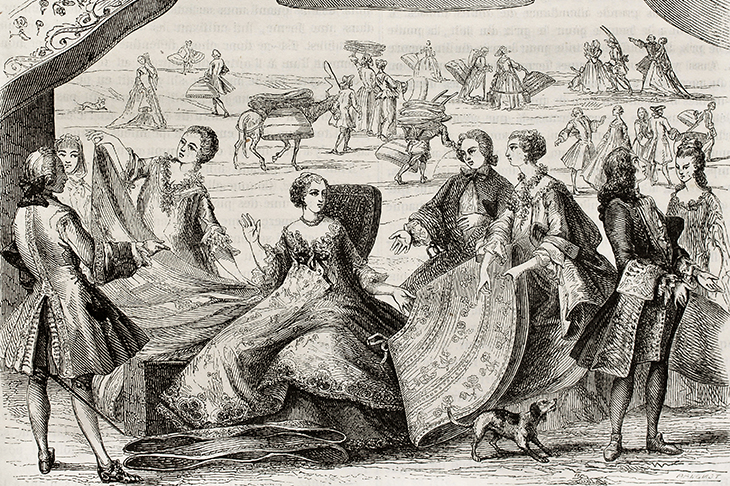Gender roles in France are evolving

This image from the early 17th century shows Margot, center, a renowned clothing merchant. France"s historic perspective on women and gender issues is the subject of research by Domna C. Stanton, a women"s studies expert who spoke at Tulane on April 10. (Image from Shutterstock)
When people think of revolutionary moments for the cause of women"s rights, they usually don"t think about the rise of salons in 18th-century France. However, Domna Stanton proves how the development of the female salon was in fact a monumental change for women at the time.
“I see the French salon as an opportunity for the female friendship to develop. Friendship was actually once seen as primarily something males partook in and thus friendship deeply increased the women"s power,” said Stanton, a scholar of 17th-century and early-modern French studies who spoke at Tulane University on Thursday (April 10).
This is just one of many examples Stanton cited of how history shapes gender norms just as much as gender norms shape history.
In her lecture, Stanton combined history with social science to reveal the hidden secrets of past women"s lives and experiences. Her discussion focused on how historical factors have a large impact on gender stereotypes throughout history.
In discussing the changes in gender perception, she brought up modern times to discuss the recent debate in France about gender studies and her newest book, The Dynamics of Gender in Early-Modern France: Women Writ, Women Writing.
“In modern France, the feminist movement has not taken off as it has here in America; it never developed as much of an academic edge,” said Stanton.
Stanton compared the American feminist movement to the one in France, pointing out how there has been a major backlash against feminism in France. She attributes this to a French fear of ideology after Marxism and fascism.
She sees research as the road to reconciliation and encouraged the audience to make themselves familiar with gender studies to better understand the society they live in.
Stanton"s talk was supported by a Newcomb College Institute Special Initiatives Grant, the Department of History, the Kathryn B. Gore Chair in French Studies, the Department of French and Italian, and the program in Medieval and Early Modern studies.
Claire Davenport is a first-year student at Tulane University, majoring in English and political science.
